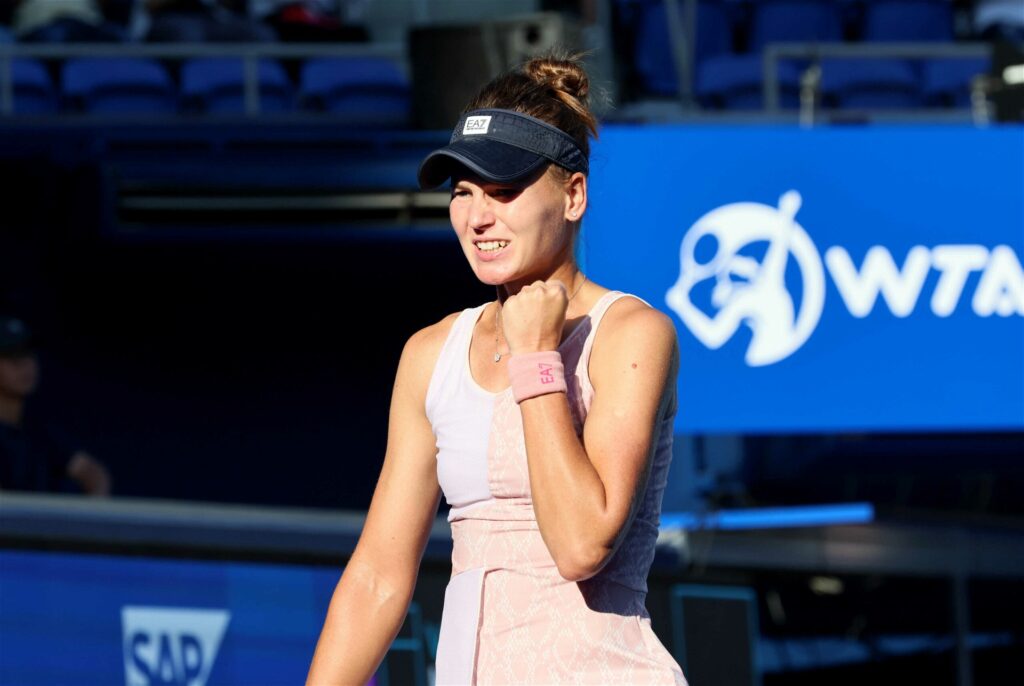The introduction of performance exemptions for the Tokyo and Beijing tournaments on this year’s Autumn Asian Tour means that players’ outstanding performances in one tournament will see those players awarded a performance exemption into the first round of the following week’s tournament.
To take the current example, it is Pegula, Sakkari, Pavlyuchenkova And Kudermetova The players who all received a bye into the second round of the China Open in Beijing next week, thanks to their last four appearances in Tokyo this week, have all been given a bye into the second round. That means the top three ranked players – Sabalenka, Swiatek and Coco Gauff – have not been given a bye.
This is a significant change from the traditional bye rule, which grants free entry into the second round of the tournament to the highest-ranked players. The spirit has always been to reward consistency throughout the year, allowing the best players of the last twelve months to enjoy safe passage beyond potentially tricky and difficult opening matches.
It now appears that the WTA wants to place more emphasis on recent performances rather than relying on the annual ranking system to determine who should be given a first-round bye.
Absences from performances hurt Elena Rybakina
The decision has already sparked some consternation among players and fans. Elena Rybakinawho only found out a few days before playing in Tokyo that his world number 5 ranking would no longer guarantee him a bye to the second round.
“Thanks for changing the rules at the last moment,” Rybakina wrote in an Instagram story accompanied by a screenshot of the Tokyo draw. “Very good decisions as always @wta.”
She eventually withdrew from the event, saying her body wasn’t ready to compete.
Elena Rybakina, who was not exempted despite her higher ranking than Sakkari and Garcia: https://t.co/bIWrAKQQtN pic.twitter.com/rlqHfVHIUO
– José Morgado (@josemorgado) September 23, 2023
It is important to note that performance exemptions are currently only on trial and do not yet constitute a permanent, full-time rule change.
Odd timing of rule change raises tough questions
However, the timing is enough to raise eyebrows. It could be argued that introducing the non-compliance test at the end of the season undermines the credibility of results throughout the season, as the rules have not been consistent over the course of a campaign.
Given that the 2023 season ends in less than two months, implementing the rule change for the start of the new year might have seemed a wiser decision, while still giving the WTA the offseason to properly announce its plans.
This also means that the final Tier 1000 tournament of the year – one of the most important events of the entire season – will be played under different rules than the others, giving a helping hand to players who arguably don’t deserve it.
Anastasia Pavlyuchenkova is a perfect example. She is an excellent player, and her 2021 French Open final is a clear indicator of her qualities. But Pavlyuchenkova would be the first to admit that the last two years have not gone as planned. She is currently ranked 86th in the world. Granting a first-round bye to a player well outside the top 50 seems like a result of confused thinking.
Good intentions, but flawed implementation
On the contrary, the goal of the rule change seems clear, even if it has its flaws. Too often, players who have just won a tournament have only a few days to get back on their feet before starting their next event, leading many title winners to retire prematurely the next time around.
If this is an effort to alleviate this problem, then it is a laudable idea.
The problem, however, is the short evaluation period for determining who should benefit from the performance exemptions. One week is certainly not enough.
Any player in the top 100 is capable of having a good run in a tournament, but that doesn’t necessarily mean they should be granted a performance exemption. If the rule took into account points accumulated over a longer period of time, say two months, then it might make more sense.
For now, the WTA continues to experiment with the current performance exemption system. Perhaps in time it will be recognized as a positive adjustment to the tour’s rules, providing a much-needed reprieve to in-form players who otherwise would never have been eligible.
However, given the immediate reaction from fans and players so far, this scenario currently seems somewhat unlikely.
